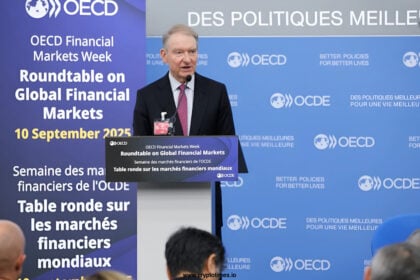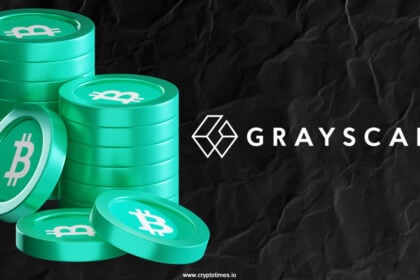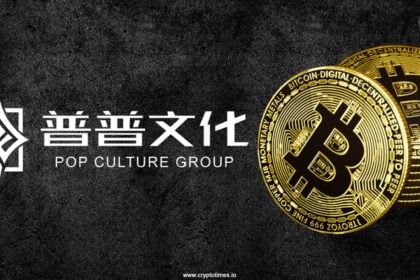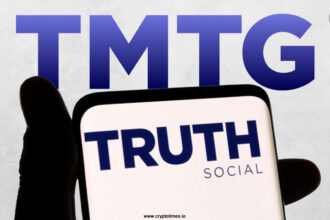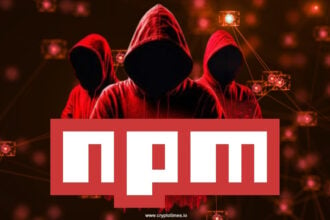The recent conflict between the Trump family-backed WLFI token and Justin Sun challenging the core principles of the DeFi space, has drawn attention from across the crypto world.
The controversy started when WLFI blacklisted a wallet associated with Justin Sun last week, freezing millions of dollars’ worth of tokens. This unprecedented move came after on-chain data showed a transfer of WLFI tokens from the address to an exchange, which WLFI’s team characterized as “malicious or high-risk activity.” Sun, in turn, has publicly decried the action as an “unreasonable” and unilateral decision, arguing it violates the very principles of decentralization.
We talked to Nicolai Sondergaard, a Research Analyst at Nansen, to help us understand this drama as it unfolds and what it means for the crypto ecosystem as a whole. Nansen is a blockchain analytics platform that gives real-time, on-chain data and insights, which let you see the movements and actions of important people in the crypto market from a unique angle.
Let’s Learn More About What He Thinks Below.
As an experienced analyst, can you briefly explain why this incident between Justin Sun and WLFI is making headlines so that people new to the Defi space can also understand?
Justin Sun has been an early supporter of World Liberty Fi, and with all the involved being rather prominent figures, it creates a lot of buzz when drama arises, in this case, that World Liberty Fi decided to freeze the tokens on the main wallet from Justin Sun that was holding WLFI tokens, a move not usually seen in this space. This means that Justin Sun is unable to move or sell tokens on the frozen/blacklisted address.
The idea of decentralization is pretty simple, and both WLFI and Justin Sun (Tron) have been showing themselves as real players of decentralization. So, how can their ideas and actions clash?
In this case, I think it is fairly simple. Freezing addresses and tokens is usually only done in the crypto space when there is talk of proven criminal activity. A CEX or protocol hack, for example, and this is where there is a clash, as all there is right now are allegations.
Anything related to President Trump and his family makes waves globally. Will this case follow a similar pattern or be unique?
Based on interest from various participants in and outside the space, I’d say it is equally likely to be something that will be spoken about. Both parties involved are high-profile, so it makes sense that people are interested.
Do you believe that both sides are genuinely decentralized rather than merely imposing their own interpretation of decentralization? If yes, who do you think is more dangerous for this space?
Looking across crypto, most projects are not 100% decentralized. Decentralization means no one person or group can fully control the system. Decisions and power are shared across many people, not held in one place. The system should keep running even if the original team disappears. It’s about trust in the code and community, not in individuals.
What do you believe led WLFI to choose blacklisting Justin Sun’s wallet over addressing the matter through governance or open community voting?
Likely for the reason that they posted on September 5th, which in their own words is “4/ We do not seek to blacklist anyone. We respond when alerted to malicious or high-risk activity that could harm community members. User safety > everything.”
Justin Sun’s USDD was launched on Ethereum. Do you think this incident would have any impact on these projects in the near future?
I do not see how the allegations will have an effect on the project USDD.
This situation highlights the potential for ”rug pulls” or unilateral actions by project teams. What on-chain metrics or patterns would you advise investors to look for to identify projects with a similar degree of centralized control before they invest?
If investors have the technical know-how, they should look at the contract of the tokens they invest in to understand what the project is able to do. In addition, always look at token distributions and understand how tokens will be unlocked (assuming tokens are locked).
Do you believe Sun’s $9M transfer was a genuine test, as he claimed, or an attempt at market manipulation?
I take words at face value unless anything else can be proven. All it shows now is a 50M token transfer that, in the end, was transferred to HTX only several hours after the blacklist of the main address.
Finally, who do you think has a stronger stance in this clash?
As in stands, World Liberty Fi is obviously holding more power as they can freeze and unfreeze tokens whenever. I’m not sure what legal claim there currently is with regulation as it is, with regard to moves like this, meaning what can Justin Sun do at this moment. The point is that one is innocent until proven guilty, and the move from World Liberty Fi is not a common occurrence in the space.
With regard to the conflict, after both parties made their initial statements following the blacklisting, no new updates have been shared yet. However, experts anticipate further actions or statements from them.
Meanwhile, as per CoinMarketCap, WLFI’s token continues its downward trajectory, trading at $0.2089, less than 1.3% from the previous day.
Also Read: Vietnam Unveils World’s Fifth Statue of Satoshi Nakamoto
Disclaimer: This content is for informational purposes only. It does not aim to provide financial, investment, legal, or trading advice of any kind. Readers should always do their own research, consult with licensed professionals, and evaluate risks independently.





